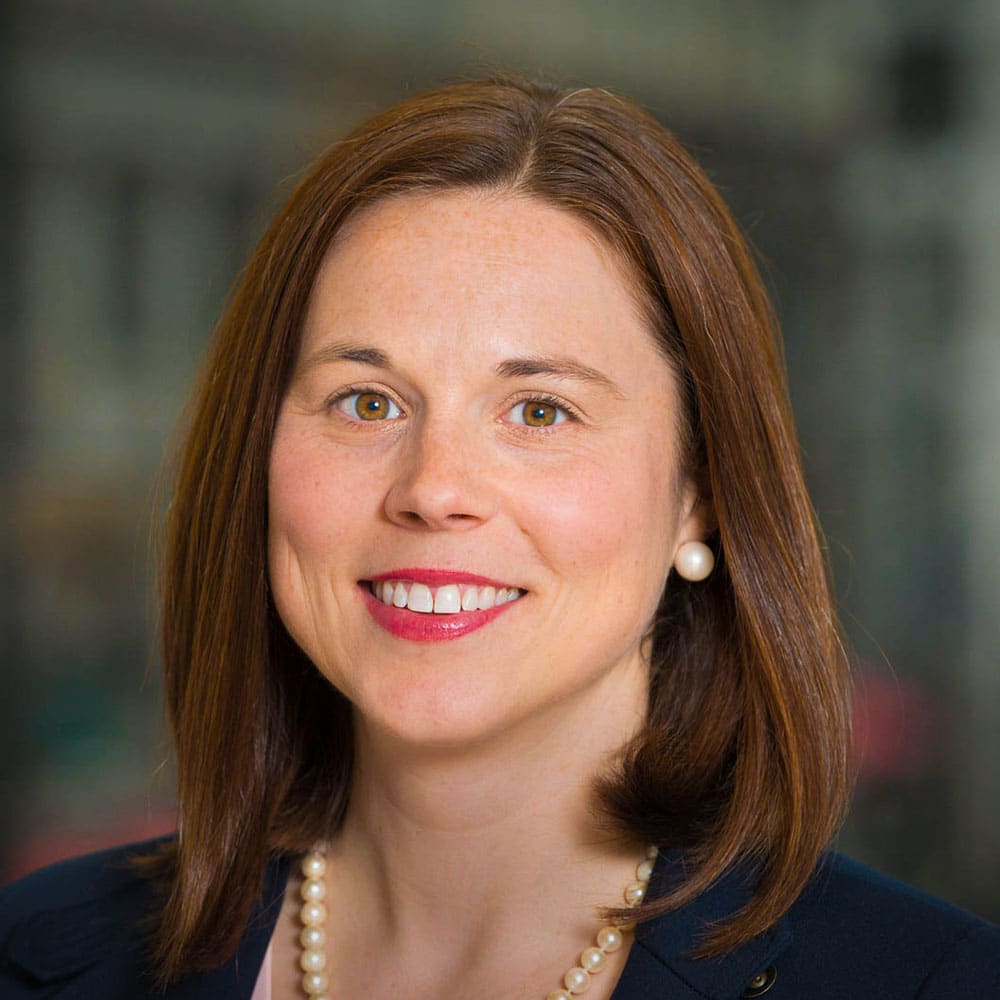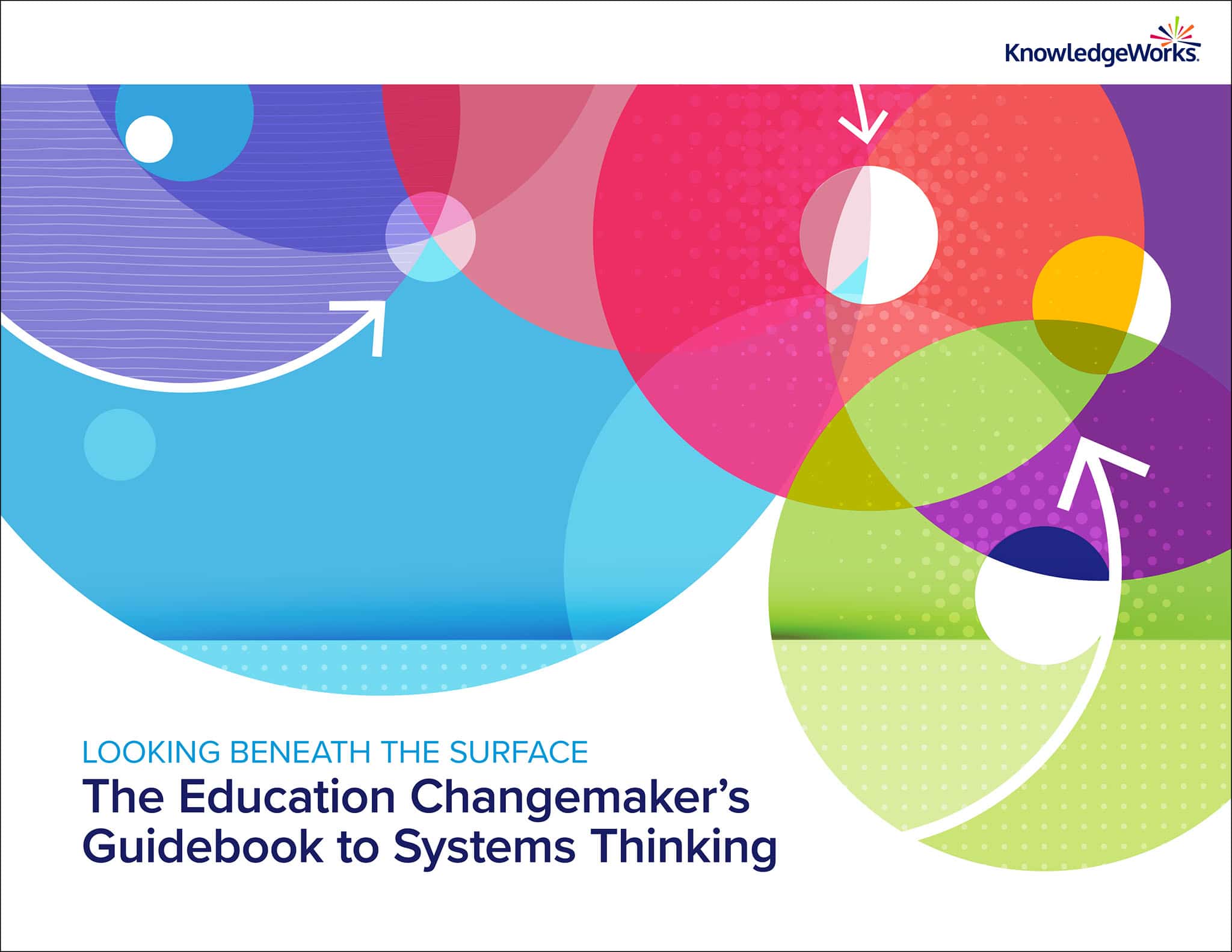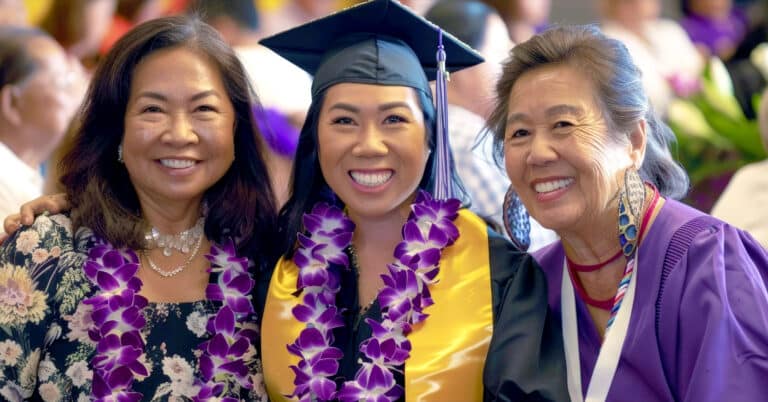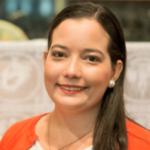KnowledgeWorks’ recent publication “Education in the Balance: Tensions Affecting Education’s Futures” highlighted contested power as a prominent feature of today’s education system. This shift is especially felt in communities where people of color are finding new avenues of influence and restructuring systems.
I had the privilege of exploring this shift in power further in a recent engagement with Janelle Wood, the Founder of the Black Mothers Forum, an organization working to educate, organize and take action to end the school to prison pipeline. Janelle is a wife and mother with a passion to see that all of our Black sons and daughters are free to live in safe and supportive communities. She is working hard to center marginalized voices in education and policy conversations.
How has the impact of COVID-19 on the nation’s schools and heightened awareness of racial oppression among people of privilege opened new avenues of influence for the Black Mothers Forum?
Wood: Unfortunately, it has had to take a pandemic and the death of George Floyd for people to finalize realize the disproportionate and often unjust treatment we as Black Americans face on a daily basis. As a result, we have had many requests for our input in matters of how to provide more racially just and equitable school / police policies, practices, etc. We have been asked to serve on boards and commissions that have traditionally excluded our voices.
Have you noticed greater receptivity from established power structures to center community voices in their work to help the nation’s K-12 students, particularly the voices of our most marginalized communities?
Yes. For example I have seen the Osborn School District have their schools engage in our Community Conversations to provide a safe space for Black students and their parents to share their expectations of their school administrators, teachers and staff in an effort to create safe and supportive learning environments for their Black students. Upon completion of the Community Conversations we were able to show school administrators the areas where there were gaps in meeting the expectations and needs of their Black students, mainly giving them more grace to make mistakes and not embarrassing them when they do. We saw a 30% decrease in discipline within the first month, per their behavioral coach.
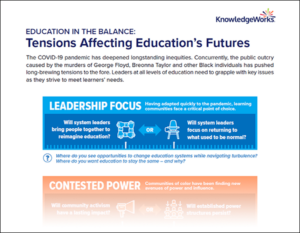
Explore the other issues and the tensions that arise from them in “Education in the Balance” and the sensemaking templates.
Explore more >
How are your engagement strategies changing to respond to the events of this past year?
We have been more intentional in our collaborations with our young adult Black sons and daughters in their organizing efforts to help decenter whiteness in community spaces.
Are you finding new ways to elevate your message across traditional power structures?
Yes, we have become more involved in the legislative process and intentional in establishing and building relationships with our legislators.
What changes do you think the K-12 education system must embrace to address systemic inequities – particularly those that are harmful for communities of color?
The K-12 education system must address the fact that it needs to collaborate with Black parents with respect to how best to educate our children and how to properly discipline our children free from harsh and dehumanizing outcomes.
What’s one message you would lift up to policymakers right now as they discuss ways to reopen schools and address what many are calling “learning loss?”
To prepare for racial tensions amongst their students who have been home watching the news, listening to their parents, social media, etc. Schools need to have a plan to create a safe space for our children to work out their anger, anxiety and frustrations with the killing of unarmed Black men and women. School administrators need to be slow to react to extreme behaviors that are only a result of the things I mentioned above.
What do you predict for the future of community activism in education reform?
We will see increased attention to addressing the racial injustices within our current school system and a push to decenter whiteness / white supremacist ideologies within our curriculums.
Will it have a lasting impact?
It must. Sustainability is key. We need a complete shift away from school policies that leave room for racially biased interpretations.
Or will established power structures persist?
I believe the established power structures that exist will have to change in order to retain marginalized and students of color.
Janelle’s insights are proof that centering community voices in the design and implementation of solutions leads to greater impact. A successful COVID-19 recovery will require policymakers and educators to look beyond traditional power circles to better understand the needs of the students they are seeking to serve. Click here to learn more about how the Black Mothers Forum is helping communities develop their collective voice to confront issues facing Black children.
